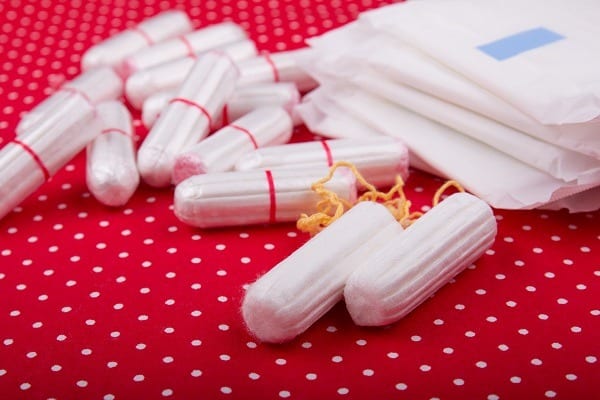A new QUT study has investigated the impact of period poverty on some young Australian women in high schools and has revealed the extent to which it is a hidden problem.
Period poverty is the term used to describe the inability to purchase sanitary products and it presents a significant obstacle to health, comfort, and engagement with school and community activities.
“Period poverty is a real issue that is under-researched,” Dr Ruth Knight from The Australian Centre for Philanthropy and Non-profit Studies based at QUT Business says. “We have anecdotal evidence of teachers personally donating products but there is a lack of data about the level of need.”
“We’ve been told girls use socks or rolled up toilet paper with underwear left on the floor or in bins while toilets are only accessible at certain times of the day. Unfortunately, what is a basic human right is often seen as a taboo topic.”
Dr Knight interviewed staff from 12 Queensland schools as part of a report she prepared about the issue in partnership with Share the Dignity.
The report identified a lack of awareness among students about menstrual management and hygiene, as well as a lack of evidence around period poverty in Australia. It concludes that “more research is required to determine the scale of the problem and the solutions that could reduce period poverty in high schools.”
While research about period poverty is limited the available evidence shows that poor menstrual management can affect the emotional and physical health of young women and can influence school attendance. A US study conducted in 2017 found that one in five American girls aged 16 – 24 have either left school early or missed school entirely because they did not have access to period products.
A 2018 survey in the UK claimed 137,700 girls in the UK missed school in 2017 because they couldn’t afford sanitary items. That survey also found that 55 percent of teachers were aware of girls in their school being unable to afford sanitary products.
Share The Dignity, a charitable organisation established by Rochelle Courtenay, believes that providing young women with access to menstrual health education and sanitary products can reduce stress and stigma while improving dignity and health. The long-term social impact of these outcomes includes increased school attendance, education and employment attainment.
This led to Share the Dignity raising the financial support from private donors, philanthropists and corporate sponsors to provide Dignity Vending Machines to Australian High Schools. As a result, 34 Dignity Vending Machines have been installed in high schools around the country providing over 12,000 female students with the access to free sanitary products.
The vending machines are stocked with Share the Dignity Packs which contain six tampons and two pads.
Each school has one vending machine that are monitored and stocked by ‘Sheroes’, Share the Dignity volunteers, monthly.
High schools with a Dignity Vending Machine are encouraged to promote the vending machine and have conversations with all students about period poverty, health and menstruation management. To assist them do this each school receives a program called ‘Period Talk’.
The interview process QUT researchers undertook revealed the need to actively destigmatise periods.
Staff from 12 Queensland schools identified a stigma in schools and sometimes a negative attitude towards periods amongst students as well as male and female staff.
“They felt that students generally loathe their periods and given periods are a sensitive topic, this compounds the embarrassment and shame in talking about the topic, which may prevent some girls asking for help or advice.”
Scotland and New Zealand have both made tampons and pads free in schools in a bid to tackle this problem. This report makes clear Australia ought to consider doing the same.


